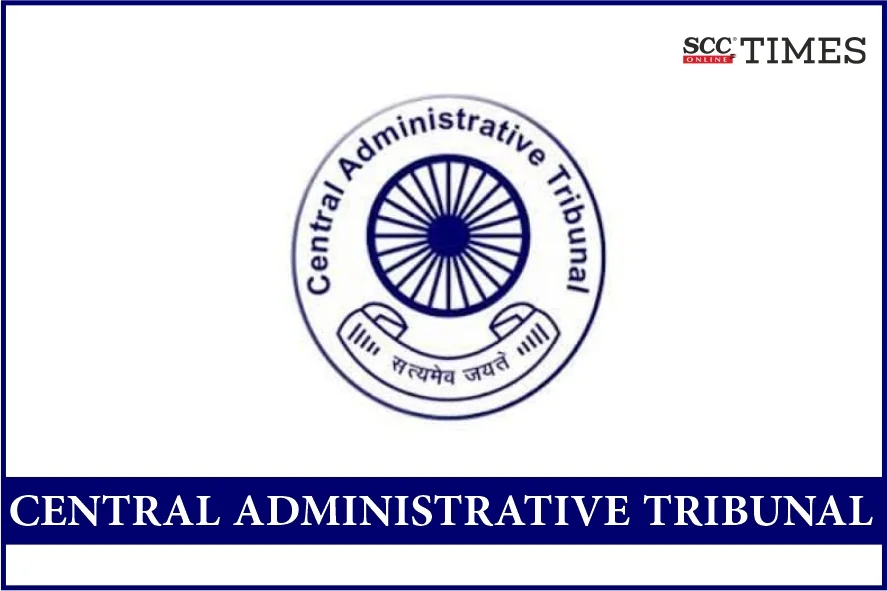Central Administrative Tribunal, Jabalpur: An original application was filed by applicants, employed as Technicians seeking to declare the provisions of Para 242(3)(1) of the Mechanical Code issued by Indian Railways to be ultra vires of the provisions of Factories Act 1948, further declare that the applicants are entitled to receive their overtime allowance as per the provisions of the Factories Act and not as per the Mechanical Code and also to direct the respondents to pay overtime at the rate prescribed in Section 59 of the Factories Act, 1948 with effect from the date from which recommendations of VI Pay Commission have been implemented. A coram of Akhil Kumar Srivastava (Judicial Member) and Kumar Rajesh Chandra (Administrative Member) allowed the application and directed the respondents to pay overtime to the applicants at the rate prescribed in the Factories Act for the year 2006 to 2009.
The Court stated that “The applicants are working in the railway factory i.e. workshop on the post of Operators which resides in factory premises and respondents has not produced any data regarding posts in railway workshop. It is contended by the applicant that there is no post of driver in workshop establishment but respondents are taking work of driver of car and colleagues working in the factory being paid double rate of ordinary wage as overtime allowance applicants are the worker of factory so without any discrimination applicants are entitled for payment of O.T allowance at the double rate of ordinary rate of wages for the year 2006 to 2009 on the basis of 6th Pay Commission.”
A group of applicants, working as Technician Grade II, filed an Original Application seeking various reliefs related to the payment of overtime allowances. The grievance was centered around the denial of overtime pay at the rate stipulated by the Factories Act, 1948. Instead, the respondents, referring to para 242(3)(i) of the Mechanical Code issued by the Indian Railways, had been paying them at a rate different from that mandated by the Factories Act. Despite several representations, the applicants’ demands were not addressed, leading them to approach the Tribunal.
The applicants asserted that their nature of work fell under the ambit of the Factories Act, 1948, as they were employed in a workshop registered under the Act. They pointed to Section 59 of the Factories Act, which mandates payment of overtime at twice the ordinary rate of wages if a worker exceeds stipulated working hours. They argued that their designation as Operators within the workshop premises qualified them for such benefits. Additionally, they highlighted instances where their colleagues, engaged in similar roles, were receiving overtime pay as per the Factories Act. In response, the respondents contended that the applicants’ duties aligned with para 242(3)(i) of the Mechanical Code, which governed overtime payments for railway employees. They argued that the applicants, being railway workers, were bound by the provisions of this code, which differed from those of the Factories Act.
Upon examining the pleadings and documents presented by both parties, the Tribunal noted several key points. It recognized that the applicants were indeed working in a workshop registered under the Factories Act, 1948. Moreover, their designation as Operators within this workshop indicated that they were engaged in factory work, thus falling within the jurisdiction of the Factories Act.
The Tribunal observed that while the respondents cited the Mechanical Code, they failed to provide sufficient evidence regarding the applicability of this code to the applicants’ situation. Furthermore, the absence of data regarding posts within the railway workshop weakened the respondents’ argument.
Thus, the Tribunal ruled in favor of the applicants and held that they were entitled to overtime pay as per the provisions of the Factories Act, 1948. The respondents were directed to make payments accordingly for the specified period, i.e., from 2006 to 2009 emphasizing the absence of discrimination in granting overtime allowances and underscored the applicants’ entitlement to such benefits based on their factory employment status.
[S N Malviya v. West Central Railway, 2024 SCC OnLine CAT 230, decided on 08-05-2024]
Advocates who appeared in this case:
Shri Manan Agrawal, Advocate for applicants
Shri N.K. Mishra, Advocate for respondents







